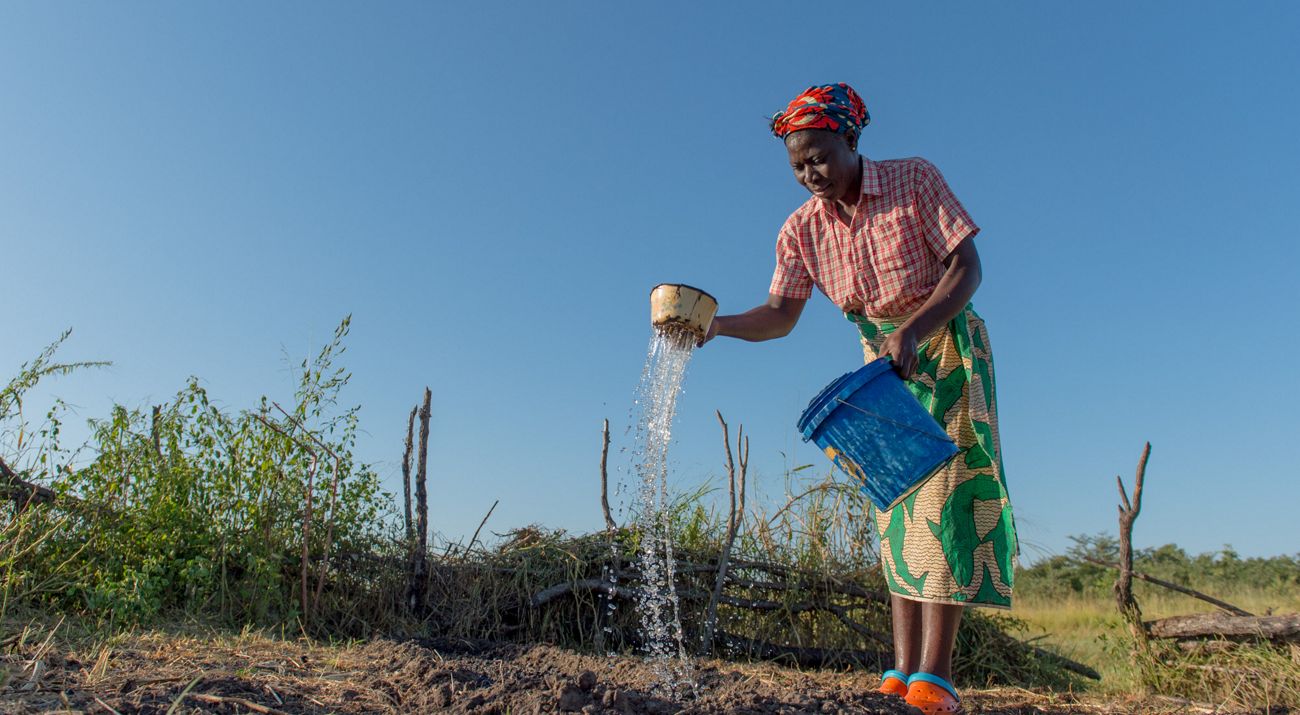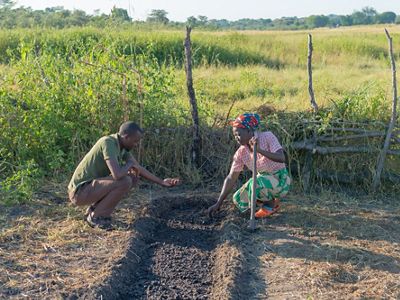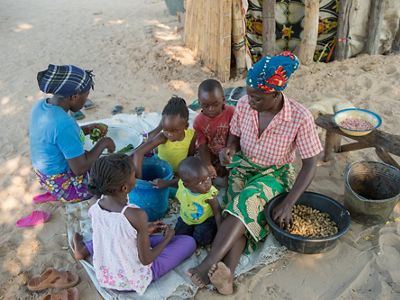
Zambia: Harvesting for the Future
Through support from The Nature Conservancy, Charity Siankuku becomes a leader in transforming food security and livelihoods in her village.
Mulobezi in southwestern Zambia is about as remote as it is possible to be in this part of Africa. Although the famous Victoria Falls is only 100 miles away by train, the journey can take up to four days over the long-neglected colonial-era tracks. The road is useable in the dry season, but becomes almost impassable for everything except 4x4 vehicles during the rain.
The Mulobezi Game Management Area (GMA) — a buffer-zone alongside the Kafue National Park — is made up of 76 villages, about 13,000 people. The community members are almost all subsistence farmers, but farming can be extraordinarily tough here.
TNC staff identified food security as a key threat in 2012 when community members reported having access to food for only a third of the year. This had to be addressed first: After all, people can’t take care of nature until their own most critical needs are taken care of.
Years later, the results of this work can be seen through the story of a grandmother named Charity.

Charity Siankuku lives in Kapunda Village with her children and grandchildren. Her husband passed away four years ago following a sudden illness and Charity became the sole breadwinner for her family.
“My grandchildren are here because their father is sick in Livingstone at the hospital,” Charity said. “His wife, my daughter, is looking after him. Now that the family has become bigger, life is more difficult.”
Since her husband’s death, Charity has been working long, hard days on her own, planting maize and vegetables to keep her family fed. She’s been dealt a tough hand but Charity is determined to provide for them saying, “To me, my children and my grandchildren are my life.”
This year the rains stopped very early in the year and the ensuing drought meant that Charity’s entire maize crop was lost. Maize is the staple food of the community here, and families must grow enough during the rains to last them the rest of the year, so this is a particularly devastating loss.


In 2012, TNC began the process of helping this community improve their food security. TNC staffer Robson Mwenee, along with a Peace Corp volunteer, began talking to the Mulobzezi community and eventually convinced the district government to place an agriculture extension officer here for the first time since 1957.
Extension officer Brian Chungu trained villagers, including Charity, in conservation farming practices that would increase yields, improve soils, and reduce the need to clear more forest for more fields. For example, he explained how crops such as ground nuts and sunflower could better survive the lack of rain and provide an alternative highly nutritious food.
“Because of this year's drought my maize has died, so I am concentrating on growing vegetables according to what Brian Chungu taught us, using little water, we prepare our beds so that moisture remains in the ground,” Charity said.
As a result of TNC’s work in this area, families like Charity’s will make it through the dry season and re-plant when the rains return with renewed hope for a better year ahead.

As food security needs continue to be met, villagers can focus on other things, such as the new sustainable timber project. After receiving a timber concession in 2018 with TNC’s support, the Moomba Community Resource Board (CRB) formed a company named Kabuzu Timber to put the license to use and begin sustainable logging. Charity serves on the company’s board.
“I am happy that from this income, the CRB will start building schools and clinics,” Charity said. “This is not just for me or my household, no, it’s for our children and our grandchildren.”


